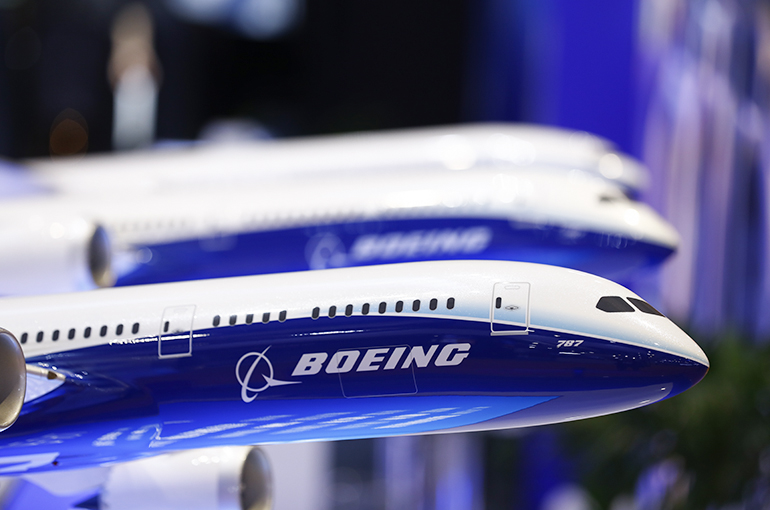 Chinese Airlines May Rethink Boeing Purchases After China Hit Back at Trump Tariffs, Expert Says
Chinese Airlines May Rethink Boeing Purchases After China Hit Back at Trump Tariffs, Expert Says(Yicai) April 8 -- China's retaliatory tariffs in response to US President Donald Trump's trade policies will significantly raise the cost of Boeing aircraft for Chinese airlines, potentially leading them to adjust their fleet procurement strategies, according to a civil aviation industry expert.
"A 34 percent tariff hike is substantial and will impose massive new costs on Chinese carriers planning to acquire US-made aircraft," Lin Zhijie told Yicai. Airlines will likely seek alternative suppliers or delay purchases to mitigate the impact, he added.
China's move to impose an additional 34 percent duty on all US imports starting April 10 will increase duties on Boeing planes and related aviation parts imported into the country to nearly 40 percent from 5 percent.
Carriers may prioritize leasing planes over direct purchases in the short term, while long-term strategies could shift toward ordering Airbus or China-made aircraft, Lin noted.
The tariffs may bring opportunities for the C919, China's first homegrown large passenger jet. The plane's maker, Commercial Aircraft Corporation of China, delivered 12 units to the country's three major state-owned airlines -- Air China, China Eastern, and China Southern Airlines -- last year.
COMAC is preparing to launch a second production line for C919 jets to boost its annual output to 30 units by next year. In addition, the company revealed plans to ramp up production to 200 units a year by 2029 at a recent supplier conference.
The likely increases in the cost of buying Boeing planes give airlines leverage to delay new purchases, Lin pointed out.
"China's aviation market still faces excess capacity," an executive from one of the big three airlines said to Yicai. "Our strategy focuses on expanding narrow-body fleets while controlling wide-body growth," the person noted, adding that this approach allows carriers more flexibility to adapt operations amid tariff tensions.
Trump signed an executive order on "reciprocal tariffs" on April 2, announcing a baseline 10 percent levy on trading partners and additional tariffs for some. Chinese imports face an additional 34 percent border tax, prompting China to take swift countermeasures.
Editor: Martin Kadiev